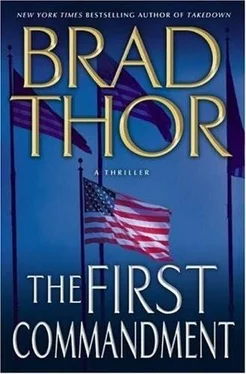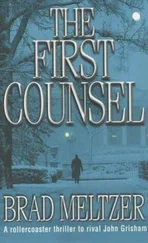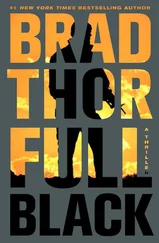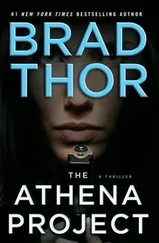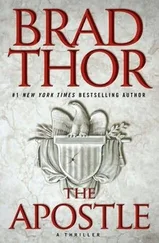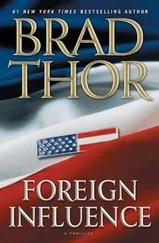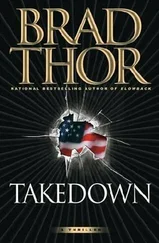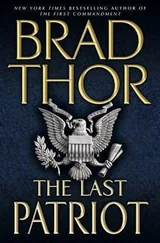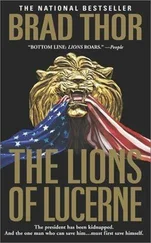“How much more?”
The chief of staff lowered his voice. “Before he escaped, Harvath was debriefed about his recent trip to Jordan. Apparently, he was able to lure Abdel Salam Najib out of Syria to Amman.”
The president could feel his chest constricting. “Harvath killed him. Didn’t he?”
“Yes, sir, he did.”
“God damn it!” Rutledge bellowed. “First Palmera and now Najib. When their people realize what’s happening they’re going to strike back. We need to assemble the National Security Council.”
The president had his work cut out for him. He knew there was no way the United States could provide continuous protection for every single school bus in the nation. It wasn’t just a logistical nightmare; it would also create widespread panic. American citizens would rightly wonder if school buses weren’t safe from terrorists, what was. Would movie theaters be safe? Would shopping malls? How about public transportation? Should they even keep their children in school? Should they even be going in to work?
The specter of terrorism, especially when given weight and legitimacy by the government, had an amazingly corrosive effect on society. The president had read the classified reports on the impact of the D. C. sniper shootings and had studied the extrapolations of how quickly the U. S. economy would suffer if a similar threat was played out nationwide. After the economic ramifications began to unfold, the societal problems would erupt. If law enforcement couldn’t bring the perpetrators to justice, citizens would begin to take matters into their own hands. Hate crimes would spike, and groups who felt they were being persecuted would begin to strike back. If the situation was not addressed quickly and effectively, rioting would ensue. In a word, the situation would devolve into anarchy. The psychological effects of terrorism were absolutely insidious.
The president’s chief of staff interrupted his thoughts by saying, “There’s also something else we need to talk about.”
Rutledge shook his head as if to say What else could there be?
“A reporter from the Baltimore Sun contacted Geoff Mitchell’s office for a statement on a story he’s about to run. As you know, being the White House press secretary, Geoff gets asked a lot of wild, conspiracyesque questions, but this reporter has his teeth into something. Geoff’s afraid it could get some traction if not put down immediately with a direct repudiation from you.”
“What’s the story?”
“The reporter is going to claim that you authorized the removal of a John Doe corpse from the Maryland Medical Examiner’s Office to dupe the people of Charleston, South Carolina, into believing that their school bus hijacker had been shot and killed.”
Rutledge gritted his teeth and grabbed the arms of his chair. “Where the hell did that story come from?”
“At this point, sir, it doesn’t much matter. What matters is that it’s pretty damaging, and he’s going to also allege the White House was complicit in a homicide.”
“ A homicide? What homicide?”
“According to this guy Sheppard, a Maryland assistant medical examiner and one of his investigators were approached by two men posing as FBI agents who told them to leave the case alone. Shortly thereafter they were killed in a traffic accident.”
The president was livid. “Why the hell wasn’t I told about this?”
Anderson shrugged his shoulders and said, “I assume you’ll have to ask Director Vaile that.”
“Get him over here right now,” ordered Rutledge. “And after I get to the bottom of this with him, I want to talk to Geoff. We absolutely cannot let that story run.”
“Do you still want me to assemble the NSC?”
The president thought about it for a moment and replied. “I want the confirmation on Najib directly from Vaile. Then I’ll decide what our next move should be.”
The chief of staff nodded and disappeared.
Once he was gone, Rutledge drilled his thumbs into his temples. He could feel a monster migraine coming on. Things were spinning so wildly out of control that they were starting to fly off the track. He didn’t want to even think of what might happen next. Deep down, though, he knew that things were going to get much worse before they even had a prayer of getting better.
On Twelfth Street, just south of Logan Circle, Harvath doubled back once more to make sure he wasn’t being followed and then crossed the street and entered the bank.
The bank officer was professional and polite. After checking Harvath’s ID and signature, she gestured for him to follow her to the vault that contained the safe-deposit boxes.
Harvath produced his key and in a synchronous fashion that he felt certain was designed to impress, the bank officer followed his lead, inserted her key, and turned it at exactly the same moment as if they were about to unleash a nuclear weapon.
Once the box was withdrawn, he was shown to a small, private room where the door was shut behind him and he was left alone.
Harvath lifted the lid off the box and removed the normal things one would expect to find-stock certificates, bonds, and legal papers. Beneath them was what Harvath had really come for.
As he stared at the items, he felt a strange sense of reluctant contentment for having had the foresight to be prepared for such an event. Actually, who was he kidding? It wasn’t foresight. He was just practical. His own government had turned on him repeatedly. What prompted him to keep the stash of items was a keen instinct for survival, plain and simple.
There had been the president’s kidnapping years ago, the more recent setup in Iraq with Al Jazeera, and now this. Each time the people he served had left him on the outside looking in. They had branded him a criminal and now, a traitor.
He had always known he was expendable. It was part of the territory, but to lump his family and friends in that category was unacceptable.
Every time he’d been forced to the outside, Harvath had had to muscle his way back in. He’d had to make the powers that be see that he was right and that they were wrong. This time, though, he didn’t know if things were that black and white. He wasn’t going to just sit back while someone stalked the people in his life. And for the first time ever, Harvath thought he might actually burn for what he was doing.
He’d always been about doing the right thing. He had pursued the correct course of action repeatedly throughout his career, often at his own peril, but with the knowledge that as long as he did what he felt was right, he’d be able to look at himself in the mirror and that was all that mattered.
Now, he was confronting something new-two versions of what was right: the president’s version and his own. The decision Harvath had to make, though, went much deeper than simply what was right. It was about protecting the people he cared about who had been put in harm’s way for no reason other than their love or friendship with him.
In Scot Harvath’s mind, there could be no bigger betrayal, no larger disloyalty than to allow these innocents to be harmed. Whatever the cost to himself, he had to stop that from happening.
Harvath gathered the things he needed from his safe-deposit box and left the bank.
As he stepped outside, his eyes rapidly scanned everything-rooftops, parked cars, the people on the street. The president had put an Omega Team on his trail, and Harvath knew that they would use all necessary means to stop him.
The team could be anywhere at this point, and he needed to be prepared for what he would do if they found him.
Harvath made it back to his SUV without incident and headed northwest out of D. C. As he drove, he removed another cell phone from the bag on the backseat and dialed.
Читать дальше
